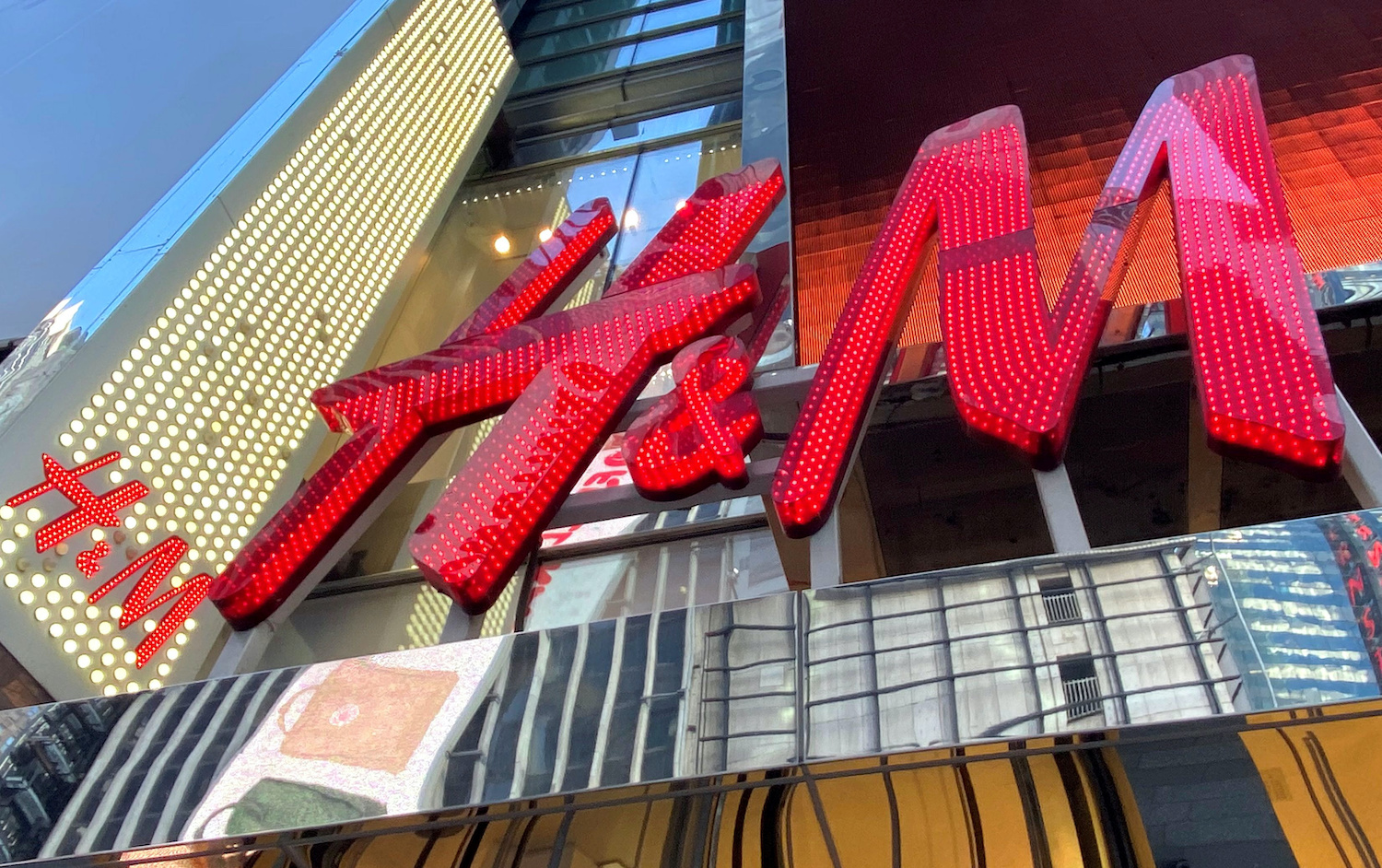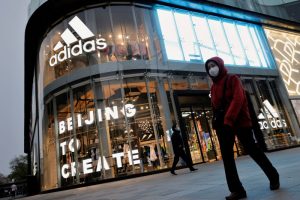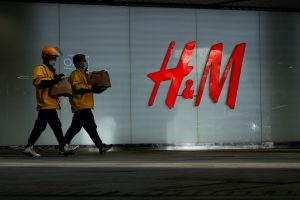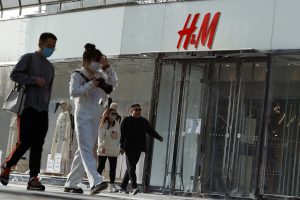H&M has suddenly been blocked from all major Chinese e-commerce platforms including Tmall, Taobao, JD.com and Pinduoduo over a year-old statement it made expressing concerns about forced labor in Xinjiang.
Adidas, Uniqlo, Nike, Gap and New Balance, which had also previously distanced themselves from Xinjiang cotton, are now in the hot seat as new targets.
While these companies addressed their stance on Xinjiang cotton some time ago, the sudden targeting comes as tensions escalate between China and western nations.
Read more: TSMC share price short-circuits over Intel’s $20 billion expansion plan
The European Union, United States, Britain and Canada on Monday imposed coordinated sanctions on Chinese officials accusing them of human rights abuses in Xinjiang. China retaliated with sanctions on European lawmakers, scholars, and institutions.
Activists and some Western politicians accuse China of using torture, forced labour and sterilisations of Uighur Muslims in Xinjiang. China denies the accusations, says it is providing vocational training and that its measures are needed to fight extremism.
The progress to pass an EU-China deal giving European companies better access to Chinese markets has been sharply reversed after the tit-for-tat sanctions. The parliament, whose approval the Comprehensive Agreement on Investment (CAI) requires, cancelled a Tuesday meeting to discuss the deal.
The centre-left Socialists and Democrats, parliament’s second largest group, said the lifting of Chinese sanctions was a condition to enter talks on CAI.
‘DEEPLY CONCERNED’
H&M said in a statement last March it was “deeply concerned by reports from civil society organisations and media that include accusations of forced labour and discrimination” and that it did not source products from Xinjiang.
The statement cited a decision by the Better Cotton Initiative, an industry group that promotes environmental and labor standards, to stop licensing Xinjiang cotton because it was “increasingly difficult” to trace how it was produced.
It was unclear why the year-old H&M statement was back in the public eye, but a wave of criticism from the foreign ministry to internet bloggers has started after the Communist Youth League, the young wing of China’s ruling party, lashed out at H&M on Weibo on Wednesday morning.
“Spreading rumours to boycott Xinjiang cotton, while also wanting to make money in China? Wishful thinking!” it said. It included screenshots of H&M’s statement in its post. State media lashed out against what it called “lies” made with “ulterior motives”.
H&M ACCUSED
Broadcaster CCTV criticised H&M for “eating China’s rice while smashing its pot” and accused the company of aiming to “destroy the development space of Chinese enterprises and workers”. Xinhua news agency added that “respecting facts” was the key bottom line.
A social media frenzy ignited by a government call to stop foreign brands from tainting China’s name prompted internet users to search for other previously issued statements on Xinjiang by foreign retailers.
Brands targeted by Internet users included Nike Inc, which in an undated statement said it was “concerned” about reports of forced labour, as did German sportswear firm Adidas.
The Shanghai-based sneakers and streetwear resale platform Poizon, or Dewu in Chinese, announced that it has removed all Nike products indefinitely from Thursday midnight, but the brand is still available on mainstream e-commerce platforms.
POP DROPS
Pop star Wang Yibo and actress Tan Songyun announced they were terminating their collaboration with the American sportwear giant.
Some internet users said they would stop buying Nike and will support local brands such as Li Ning and Anta, while others told Adidas to leave China.
At the same time, Chinese sportswear group Anta announced that it is withdrawing from the Better Cotton Initiative, saying the organisation’s recent statement is “seriously concerning”.
“We have always sourced and used cotton from China’s cotton-producing regions, including Xinjiang cotton, and will continue to source and use Chinese cotton in the future,” the brand added.
ANTA SHARES
Shares of Anta Sports Products Ltd jumped over 6% in Hong Kong on Thursday after issuing a statement saying it would continue to use cotton from Xinjiang. Li Ning Co’s shares surged by more than 7%.
State tabloid Global Times reported that Spain’s Inditex, owner of Zara, had “quietly removed” a statement on Xinjiang cotton from its English and Spanish-language websites on Thursday.
On Twitter-like microblog Weibo, users have called for a boycott of H&M.
In response to the furore, H&M said on Wednesday it respected Chinese consumers and that it was committed to long-term investment and development in China.
But by Thursday morning, H&M’s online store on Alibaba’s e-commerce platform Tmall had vanished, and searches for its products on Taobao, Pinduoduo, and JD.com return no results.
APP BANNED
Later, its mobile application was banned on Huawei, Xiaomi, Vivo, and Tencent’s China app stores, and Chinese navigation providers such as Baidu, Dianping, and AutoNavi also removed H&M’s physical store information from their platforms.
At a daily media briefing at the Chinese foreign ministry, spokeswoman Hua Chunying, when asked about H&M, held up a photograph of black Americans picking cotton.
“This was in the US when black slaves were forced to pick cotton in the fields,” she said.
Hua then held up a second photograph of cotton fields in Xinjiang. “More than 40% of the cotton in Xinjiang is harvested by machinery, so the alleged forced labour is non-existent.”
- With reporting from Reuters























